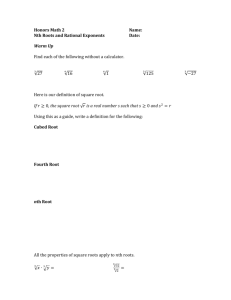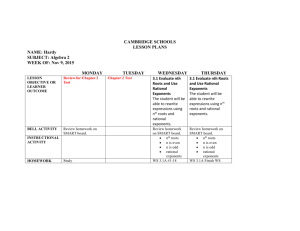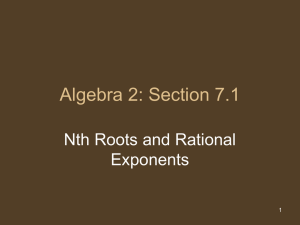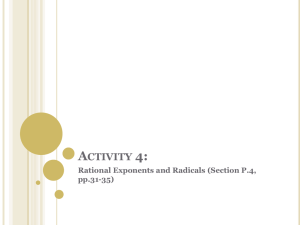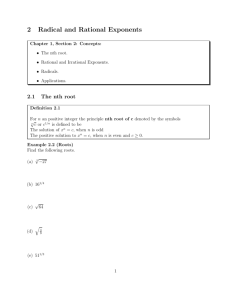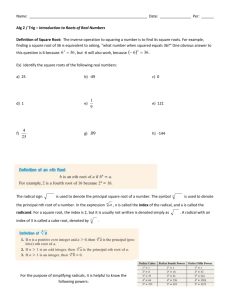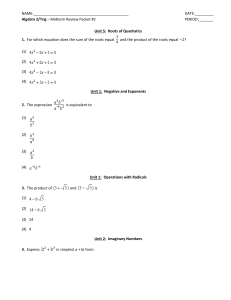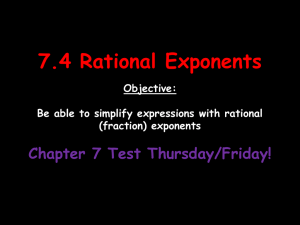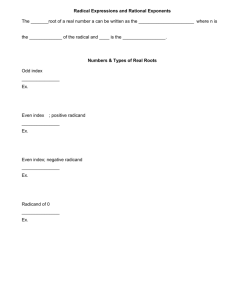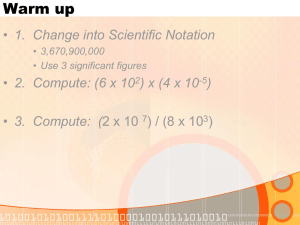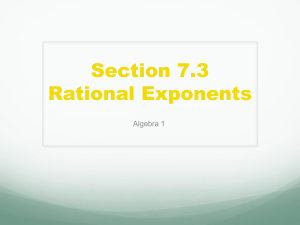Nth Root and Rational Exponents
advertisement
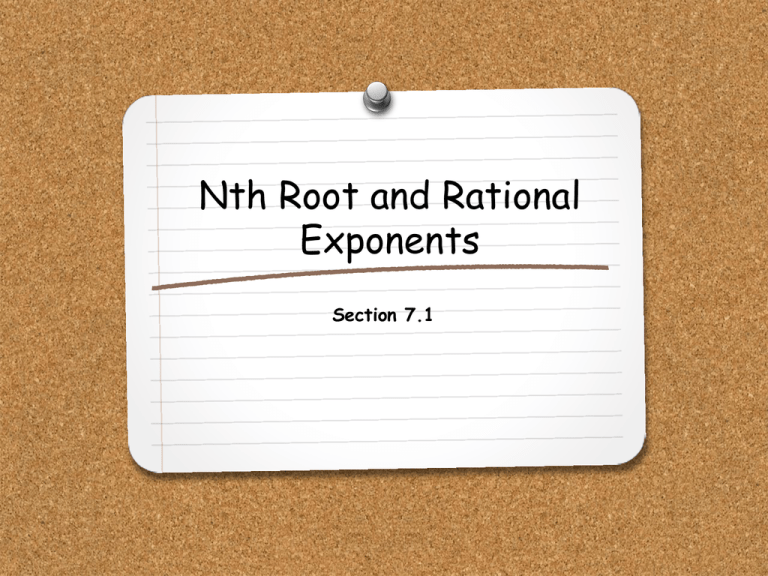
Nth Root and Rational Exponents Section 7.1 WHAT YOU WILL LEARN: 1. How to evaluate nth roots of real numbers using both radical notation and rational exponent notation. 2. How to use nth roots to solve real-life problems. Roots Other than Squares 23 is 8 We can also say the cube root of 8 is 2. (What number times itself 3 times is 8) This is more commonly written 3 8 The number written outside of the radical sign is called the index and tells you what root you are looking for. Rational Exponents Roots can also be written as rational exponents. For example: 16 can be rewritten as 16 ½ How do you think you would rewrite the following? 3 64 Some Examples • Find the indicated real nth root(s) of a. 1. n = 3, a = -125 2. n = 4, a = 16 More About Rational Exponents Rational exponents do not have to have a numerator of 1. For instance: 3 92 • The denominator is the index or root of the number under the radical. • The numerator is the power that you raise the “answer” to. “Mathy” Definition Let a 1/n be an nth root of a, and let m be a positive integer. a a m/n = (a -m/n = 1/n)m 1 a m/ n = n a m 1 1/ n m (a ) 1 n a m Some Examples • Evaluate the following: 1. 2. 9 3 2 2 5 32 You Try • Evaluate the following: 1. 16 2. 5 2 2 3 64 Using a Calculator • Evaluate ( 4 5 )3 Solving Equations with Roots • Solve the following: 1. 2x4 = 162 2. (x – 2)3 = 10 You Try • Solve the following: 1. 6x4 = 3750 2. (x + 1)3 = 18 A Lovely Word Problem • The volume for the volume V of a regular dodecahedron is v = 7.66a3 where a is the length of an edge of the dodecahedron. Find the length of an edge of a regular dodecahedron that has a volume of 30 cubic feet. Homework Homework: page 404, 14-22 even, 30-44 even, 48, 54-60 even, 66
